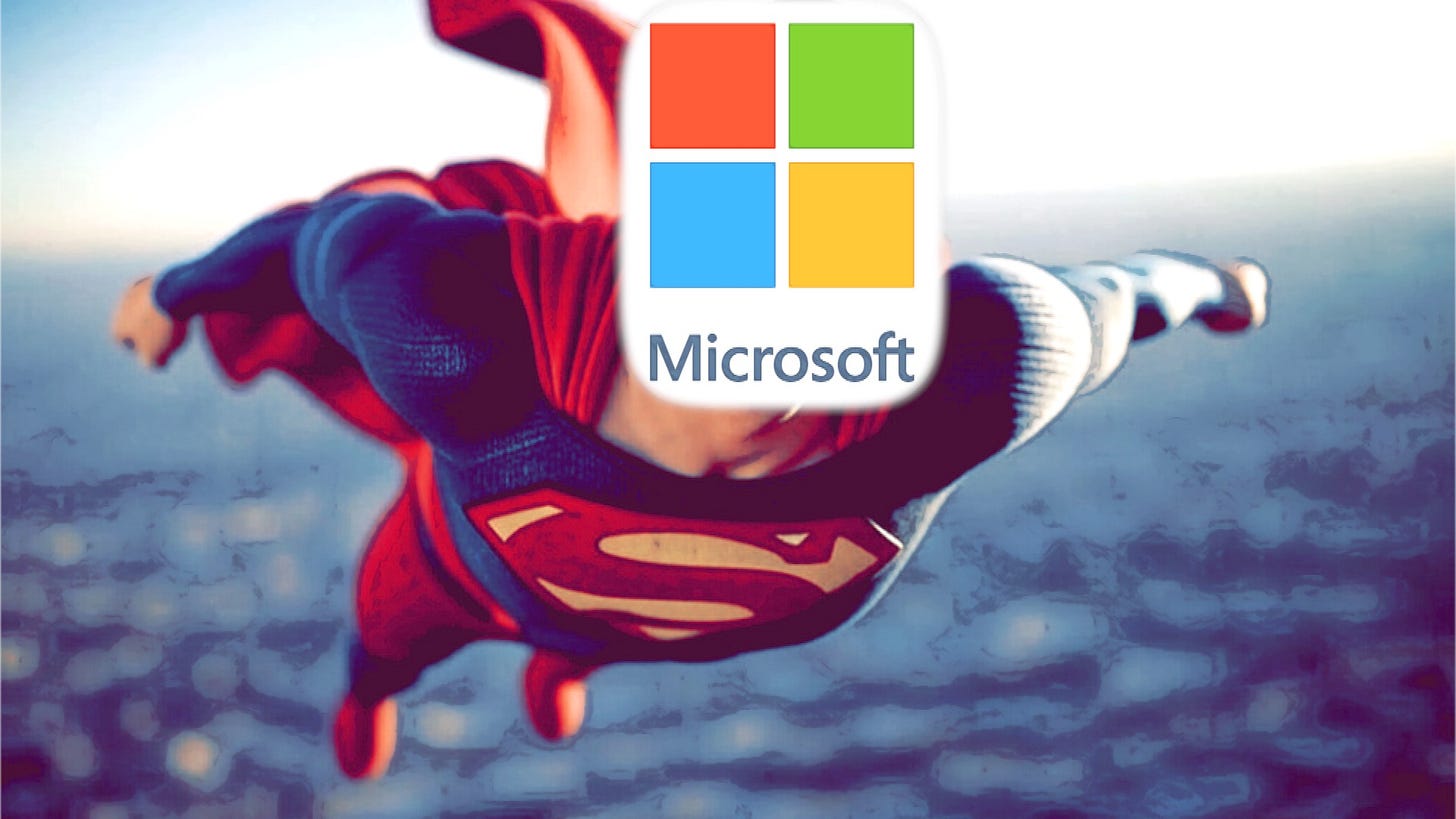Microsoft SOARS and takes the market with it!
Stocks Rally, Microsoft & Meta Beat Earnings Expectations, Nvidia Surges
What’s New: U.S. stocks surged Thursday morning, driven by blockbuster earnings from Microsoft and Meta Platforms, easing fears that President Trump’s trade war would derail Big Tech’s AI and cloud investments. The S&P 500 climbed 1%, the Nasdaq jumped 2%, and the Dow rose 210 points, or 0.5%, shortly after the opening bell.
Why It Matters: Microsoft’s Azure cloud business fueled a 9% pre-market stock surge, while Meta’s revenue beat and cost-cutting plans lifted shares 6%. These results countered recession concerns sparked by Wednesday’s data showing a 0.3% GDP contraction in Q1.
By The Numbers:
Microsoft: Up 8.5% after Q3 earnings beat.
Meta: Up 4.1% on Q1 revenue strength.
S&P 500: +0.15% to 5,569 Wednesday, now up 1% Thursday.
What’s Next: Investors await further earnings and trade policy updates, with Trump’s tariffs still looming over markets.
The Bottom Line: Big Tech’s resilience is buoying markets, but tariff uncertainty keeps volatility high.
Weekly jobless claims spike but markets appear not to care
Initial unemployment claims surged to 241,000 last week, topping economists' expectations of 225,000, a fresh sign the U.S. economy may be faltering. The jump, reported by the Labor Department, marks the highest level since August 2024, raising concerns about labor market stability.
Why it matters: The unexpected rise follows a trend of softening economic indicators, with layoffs in federal agencies and private firms like Starbucks contributing to the spike. Economists warn this could foreshadow broader job losses. However markets appeared to shrug off the news on the back of stellar earning reports from Microsoft and Meta. The S&P 500 is up nearly 30 points in a week, reclaiming the ground it lost yesterday over GDP fears.
By the numbers:
Claims rose by 16,000 from the prior week’s revised 225,000.
The four-week moving average climbed to 236,750, up 3,250 from the previous week.
What they’re saying: “This report is a red flag for the labor market,” said Robert Frick, economist at Navy Federal Credit Union. “We’re seeing cracks in sectors tied to government and consumer spending.”
The big picture: While claims remain below recessionary levels, the uptick suggests employers are pulling back amid uncertainty. Federal Reserve officials, eyeing inflation and growth, may face renewed pressure to adjust rates.
What’s next: Analysts await next week’s jobs report for clarity on whether this surge signals a broader downturn.
Nvidia SURGES as Big Tech doubles down on AI
What’s happening: Nvidia’s stock jumped up to 4.3% Thursday, spearheading a chip stock rally after Meta and Microsoft reaffirmed hefty AI investments.
Why it matters: The surge signals renewed investor confidence in AI infrastructure demand, countering fears of slowing Big Tech spending and Supermicro Computers’s horrendous results yesterday. Nvidia, a key AI chip supplier, benefits directly from these commitments.
Driving the news: Meta boosted its AI infrastructure spending, with CEO Mark Zuckerberg emphasizing, “We continue to increase our investments and focus more of our resources on AI.” Microsoft, meanwhile, upheld its $80 billion AI data center plan, with CFO Amy Hood stating, “We remain committed to investing against the strong demand signals we see for our services.”
By the numbers: Nvidia’s rise follows a tough 2025, with shares down 19% year-to-date amid trade tensions and export curbs. Meta’s revised capital expenditure estimate exceeds $60 billion, reflecting robust AI hardware demand.
What’s next: Investors will watch Nvidia’s upcoming earnings for signs of sustained growth, while trade policies and China’s AI chip advancements loom as risks.
Bottom line: Big Tech’s AI spending spree is Nvidia’s gain, but geopolitical hurdles remain.
Treasury Secretary Urges Fed Rate Cuts as Bond Market Signals Shift
Treasury Secretary Scott Bessent said Thursday that the bond market is flashing a clear signal: the Federal Reserve should cut interest rates. Speaking on Fox Business Network’s “Mornings with Maria,” Bessent pointed to two-year Treasury yields dipping below the Fed’s funds rate as evidence. “That’s a market signal that they think the Fed should be cutting,” he said.
The big picture: Bessent, a key economic voice in the Trump administration, has prioritized lowering the 10-year Treasury yield over direct Fed pressure. His comments come amid heightened market scrutiny of Fed policy, with investors wary of inflation risks tied to Trump’s tariff agenda. Despite earlier restraint, Bessent’s call aligns with President Trump’s public push for lower rates, raising questions about Fed independence.
Why it matters: Rate cuts could ease borrowing costs on loan repayments but risk stoking inflation, especially if tariffs drive prices higher. Markets are on edge, balancing growth concerns with policy uncertainty.
What’s next: The Fed’s next moves hinge on upcoming economic data and Trump’s trade policies, which could reshape inflation and growth forecasts.











